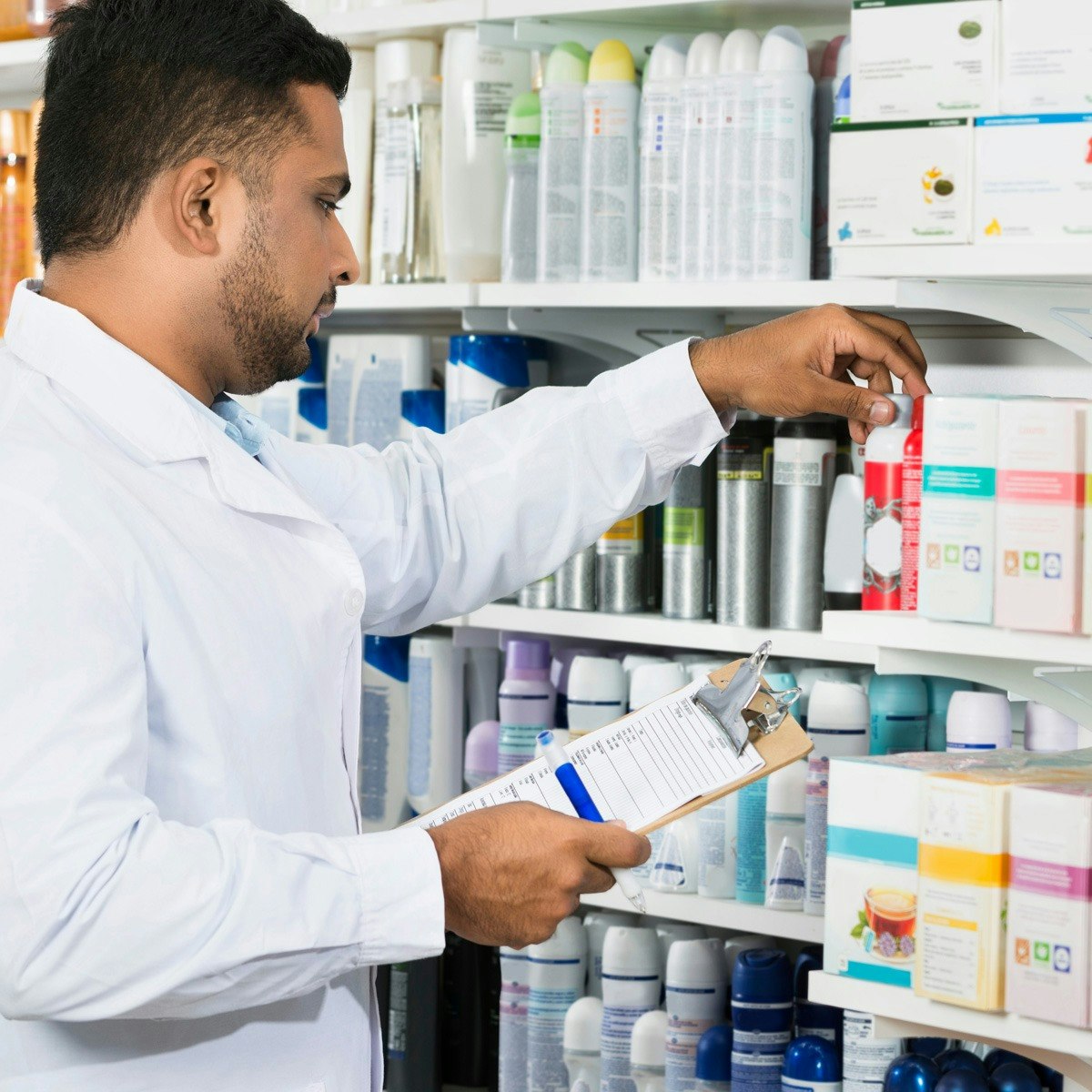Pharmacy Technician
Exploring a Career as a Pharmacy Technician
Pharmacy technicians are vital members of the healthcare team, working closely with pharmacists to ensure patients receive the correct medications safely and efficiently. They operate at the intersection of healthcare services and customer support, playing a crucial role in both clinical and community settings. This career involves precision, responsibility, and a commitment to patient well-being.
Working as a pharmacy technician can be engaging for those who enjoy detailed tasks, interacting with people, and contributing directly to health outcomes. The role offers a direct path into the healthcare field without requiring the lengthy doctoral studies of a pharmacist. It provides opportunities to specialize and grow within the pharmacy environment, making it a potentially rewarding long-term career.
What Does a Pharmacy Technician Do?
Daily Tasks and Core Functions
A pharmacy technician's day is often fast-paced and varied. Core responsibilities include receiving prescription requests, accurately counting, pouring, weighing, and sometimes mixing medications. They prepare prescription labels, package medications, and maintain meticulous patient records according to legal and institutional guidelines.
Inventory management is another key function. Technicians track pharmaceutical stock, anticipate needs, place orders for medications and supplies, verify deliveries, and manage the removal of outdated drugs. Ensuring the pharmacy workspace is clean, organized, and compliant with safety regulations is also part of their routine.
Technicians often handle administrative tasks like processing insurance claims (adjudication), managing billing, generating reports, and answering phone calls. They greet patients, answer basic questions about medication administration or potential side effects, and refer complex inquiries to the supervising pharmacist.
These introductory courses provide a solid overview of the pharmacy technician's role and the environments they work in.
Collaboration and Teamwork
Pharmacy technicians do not work in isolation. They are integral parts of a larger healthcare team, collaborating constantly with pharmacists who supervise their work and verify prescriptions before dispensing. Effective communication and teamwork are essential for a smooth workflow and patient safety.
In hospital settings, technicians interact with nurses, physicians, and other healthcare providers to clarify orders, deliver medications to patient floors or automated dispensing cabinets, and manage drug distribution within the facility. They might prepare intravenous (IV) medications or other sterile compounds following strict protocols.
In retail settings, the focus is often on direct patient interaction, requiring strong customer service skills alongside technical accuracy. Technicians act as a bridge between the patient and the pharmacist, ensuring questions are addressed and care is coordinated effectively.
Emerging Responsibilities
The role of the pharmacy technician is evolving. With pharmacists taking on more clinical duties like vaccinations and medication therapy management, technicians are often stepping into expanded roles. This can include tasks like collecting patient medication histories, managing aspects of medication reconciliation, or administering immunizations under specific protocols (where permitted by state law).
Some technicians pursue specialized training in areas like sterile compounding (preparing IV medications), non-sterile compounding (creating customized creams or liquids), or managing medications for specific disease states like oncology or pediatrics. Technology integration, such as managing automated dispensing systems or electronic health records, is also becoming increasingly important.
Understanding the legal and ethical landscape, including emergency preparedness, is crucial as responsibilities expand.
Education and Training Pathways
Foundational Requirements
Most pharmacy technician positions require a high school diploma or GED equivalent. Strong foundational knowledge in subjects like mathematics (for calculations), biology, and chemistry is highly beneficial. Good communication and computer skills are also essential starting points.
While some states or employers may allow on-the-job training, the trend is towards requiring formal education and certification. Pursuing relevant coursework in high school can provide a head start and demonstrate interest to potential training programs or employers.
Developing proficiency in medical terminology is a key early step for anyone entering the healthcare field.
Formal Training Programs
Formal pharmacy technician training programs are offered by community colleges, vocational schools, hospitals, and some retail pharmacy chains. These programs typically result in a certificate or diploma and can range from a few months to about two years in length. Some institutions may offer an Associate's degree program, providing a broader educational base.
Curricula generally cover topics such as pharmacy law and ethics, pharmacology (how drugs work), pharmaceutical calculations, dispensing techniques, sterile and non-sterile compounding, medication safety, and pharmacy operations. Programs often include both classroom instruction and laboratory practice to simulate real-world tasks.
Accreditation is an important factor when choosing a program. Look for programs accredited by organizations like the American Society of Health-System Pharmacists (ASHP) in partnership with the Accreditation Council for Pharmacy Education (ACPE), as this signifies quality and may be preferred or required by employers and for certification.
These courses cover essential knowledge for pharmacy calculations and understanding prescriptions.
Hands-on Experience: Externships and Apprenticeships
Practical experience is crucial for becoming a proficient pharmacy technician. Most formal training programs include an externship component, where students work in a real pharmacy setting under the supervision of a pharmacist and experienced technicians. This allows them to apply their knowledge and skills in a practical environment.
Externships provide invaluable exposure to the daily workflow, common challenges, and professional interactions within a pharmacy. They are excellent opportunities to build confidence, refine skills, and network with potential employers. Some employers may also offer apprenticeship programs that combine structured on-the-job training with related instruction.
Successfully completing an externship or apprenticeship significantly enhances employability. It demonstrates practical competence and readiness to contribute effectively from day one in a new role.
Online Learning and Skill Development
Leveraging Online Courses for Foundational Knowledge
Online learning offers a flexible and accessible way to acquire foundational knowledge for a pharmacy technician career. Many platforms provide courses covering essential topics like medical terminology, basic pharmacology, pharmacy calculations, and even introductions to pharmacy law and ethics. This can be particularly beneficial for those balancing studies with work or family commitments.
Online courses can serve as an excellent starting point for exploring the field or supplementing a formal training program. They allow learners to study at their own pace and revisit complex topics as needed. Platforms like OpenCourser aggregate offerings from various providers, making it easier to find relevant courses.
While online learning is valuable for theoretical knowledge, it's crucial to remember that pharmacy technology is a hands-on profession. Practical skills must be developed through laboratory work or real-world experience.
These online courses offer comprehensive introductions and specific skill development relevant to pharmacy technicians.
Balancing Theory and Practice
The most effective path to becoming a pharmacy technician combines theoretical learning with practical application. Online courses excel at delivering the "what" and "why" – the principles of pharmacology, the rules of pharmacy law, the methods for calculations. However, the "how" – accurately dispensing medications, operating pharmacy software, compounding sterile preparations – requires hands-on training.
Look for hybrid programs that blend online coursework with required in-person lab sessions or externships. Alternatively, use online courses to build your knowledge base before or during enrollment in a program with a strong practical component. Self-directed learners can supplement online theory with volunteer work or entry-level positions (where regulations permit) to gain experience.
Setting realistic expectations is key. Online learning is a powerful tool, but it's typically one part of the journey towards becoming a fully qualified and competent pharmacy technician. OpenCourser's Learner's Guide offers tips on structuring self-study and staying motivated.
Accreditation and Certification Considerations
When considering online programs or courses, especially those claiming to fully prepare you for the role or certification, verify their accreditation status. As mentioned, ASHP/ACPE accreditation is a key indicator of quality for comprehensive training programs. Individual online courses may not carry this specific accreditation but can still be valuable for knowledge acquisition.
Be aware that national certification exams, like the PTCE (offered by PTCB) and ExCPT (offered by NHA), have specific eligibility requirements. These often include completion of a PTCB-recognized education/training program or equivalent work experience. Ensure any online program you consider meets the requirements for the certification you plan to pursue.
State Boards of Pharmacy also have specific registration, licensure, and education requirements that must be met to practice legally. Always check the regulations in the state where you intend to work, as online program approval can vary.
This course is specifically designed to help prepare for a key certification exam.
Career Progression and Opportunities
From Entry-Level to Advanced Roles
Upon entering the field, most pharmacy technicians start in entry-level positions, focusing on core tasks like dispensing, inventory, and customer service. With experience, technicians can take on more complex responsibilities, such as training new staff, managing specific pharmacy sections, or handling more intricate billing and insurance issues.
Opportunities exist to advance to roles like Lead Technician or Pharmacy Technician Supervisor, which involve overseeing workflow and managing other technicians. Senior roles often require demonstrated expertise, strong leadership skills, and sometimes additional certifications or training.
Experience in different settings (e.g., moving from retail to a hospital) can also broaden skills and open up new avenues for advancement. Specializing in a particular area offers another path for growth.
Specialization Pathways
Pharmacy technicians can develop expertise in specialized areas of practice. Common specializations include sterile compounding (preparing IVs and injectables), non-sterile compounding (customizing medications), nuclear pharmacy (handling radioactive drugs), and chemotherapy preparation. These roles often require additional training and certification (e.g., PTCB's CSPT for sterile compounding).
Other specializations might focus on specific patient populations (pediatrics, geriatrics) or disease states (oncology, critical care). Technicians can also specialize in areas like pharmacy informatics (working with pharmacy software and technology), medication safety, procurement and inventory management, or regulatory compliance.
Advanced certifications offered by organizations like PTCB can formally recognize expertise in areas such as medication history, billing and reimbursement, controlled substance management, and immunization administration, enhancing career prospects.
For a deeper understanding of the medications technicians handle, comprehensive pharmacology references are invaluable.
Transitioning to Related Fields
The skills and knowledge gained as a pharmacy technician can serve as a foundation for transitioning into other related roles within healthcare or the pharmaceutical industry. Some technicians pursue further education to become pharmacists, leveraging their practical experience.
Other potential career paths include roles in pharmaceutical sales, representing drug manufacturers to healthcare providers. Opportunities may also exist in healthcare administration, pharmacy benefit management, regulatory affairs, or technical writing focused on pharmaceuticals.
Experience with pharmacy operations and technology can lead to roles in pharmacy informatics or supporting healthcare IT systems. The core competencies developed, such as attention to detail, understanding of healthcare systems, and patient service, are transferable to many adjacent fields.
Licensing and Certification Requirements
State-Specific Regulations
The regulation of pharmacy technicians varies significantly by state. Most states require technicians to register with or be licensed by the State Board of Pharmacy. Requirements for registration or licensure often include completing an approved training program, passing a background check, and passing a national certification exam.
Some states have different tiers of technicians, with varying scopes of practice based on education, certification, and experience. It is absolutely essential to research and understand the specific requirements of the state(s) where you plan to work. State Board of Pharmacy websites are the primary source for this information.
Failure to comply with state regulations can result in disciplinary action and prevent you from working as a pharmacy technician. Staying informed about regulatory changes is an ongoing professional responsibility.
National Certification Exams
While state requirements vary, national certification is widely recognized and often required or strongly preferred by employers. The two major certifying bodies are the Pharmacy Technician Certification Board (PTCB), offering the Certified Pharmacy Technician (CPhT) credential, and the National Healthcareer Association (NHA), offering the Certified Pharmacy Technician (ExCPT) credential.
Both certifications require passing a comprehensive multiple-choice exam covering key areas like pharmacology, pharmacy law and regulations, patient safety and quality assurance, order entry and processing, and sterile/non-sterile compounding. Eligibility criteria typically involve completing specific education pathways or accumulating sufficient work experience.
Achieving national certification demonstrates a standardized level of knowledge and competence, enhancing job prospects and potentially leading to higher earning potential. The PTCB CPhT is accredited by the National Commission for Certifying Agencies (NCCA).
This course focuses specifically on preparing for certification exams.
Understanding pharmacy law is critical for both certification and practice.
Continuing Education and Renewal
Maintaining certification and state licensure typically requires completing a specific number of continuing education (CE) hours within a set renewal period (often every two years). CE requirements ensure that technicians stay current with advancements in medications, regulations, and best practices.
Both PTCB and NHA specify the number of CE hours required and often mandate that some hours be in specific topics, such as pharmacy law or patient safety. CE credits can be earned through various activities, including attending workshops, completing online courses, or participating in professional conferences.
Keeping track of CE requirements and completing them on time is crucial for maintaining credentials. Professional organizations like the National Pharmacy Technician Association (NPTA) often provide resources and CE opportunities for their members.
Explore Health & Medicine courses on OpenCourser for potential CE opportunities.
Impact of Automation and Technological Trends
Automation in Dispensing and Compounding
Technology is significantly reshaping pharmacy practice, particularly through automation. Automated dispensing cabinets (like Pyxis or Omnicell) in hospitals and robotic dispensing systems in large retail or mail-order pharmacies streamline the medication distribution process, improving efficiency and reducing errors.
While automation handles some repetitive tasks previously done by technicians, it also creates new roles. Technicians are needed to manage, maintain, and troubleshoot these systems, restock medications, and oversee quality control. Some may specialize in managing pharmacy automation technology.
Automated compounding systems for sterile and non-sterile preparations are also becoming more common, requiring technicians with specialized skills to operate and monitor them.
Electronic Health Records (EHR) and Data Management
The widespread adoption of Electronic Health Records (EHR) has integrated pharmacy services more closely with overall patient care. Pharmacy technicians must be proficient in using EHR systems to access patient information, review medication orders, document interventions, and communicate with other healthcare providers.
Data management skills are increasingly important. Technicians may be involved in generating reports on medication usage, tracking inventory electronically, managing patient profiles within the pharmacy system, and ensuring data privacy and security according to regulations like HIPAA.
Familiarity with various pharmacy software platforms and EHR systems is a valuable asset in the job market.
While not specific to pharmacy, understanding EHR concepts is broadly useful in healthcare.
Adapting to Future Trends
Emerging technologies like artificial intelligence (AI) are beginning to influence pharmacy practice, potentially aiding in tasks like inventory forecasting, identifying potential drug interactions, or optimizing workflows. Telepharmacy is also expanding, creating remote opportunities for technicians in areas like order verification support or patient counseling coordination.
To thrive in this evolving landscape, pharmacy technicians must be adaptable and committed to lifelong learning. Upskilling in areas like data analysis, technology management, and advanced clinical support roles will be crucial for job security and career advancement.
Rather than replacing technicians, technology is shifting their focus towards more complex tasks, patient interaction, and specialized roles that require critical thinking and human oversight.
Essential Skills and Competencies
Precision and Attention to Detail
Accuracy is paramount in pharmacy practice. Errors in dispensing medications can have serious consequences for patient health. Pharmacy technicians must possess exceptional attention to detail when reading prescriptions, calculating dosages, selecting medications, preparing labels, and managing inventory.
This requires careful focus, methodical work habits, and the ability to double-check work effectively. Technicians must be vigilant in identifying potential discrepancies or ambiguities in prescriptions and bringing them to the pharmacist's attention.
Maintaining concentration in a busy environment and adhering strictly to established procedures are critical components of ensuring medication safety.
Mastering pharmaceutical calculations is fundamental to ensuring accuracy.
Basic math skills are also essential.
Communication and Interpersonal Skills
Pharmacy technicians interact frequently with patients, pharmacists, nurses, doctors, and other healthcare professionals. Clear, concise, and professional communication is essential, whether speaking in person, over the phone, or electronically.
Good listening skills are needed to understand patient questions or concerns accurately. Empathy and patience are important when dealing with individuals who may be ill, anxious, or confused about their medications. Technicians must also communicate effectively within the pharmacy team to ensure smooth operations.
Maintaining patient confidentiality and handling sensitive information appropriately are crucial aspects of professional communication in healthcare.
These courses help build professionalism and understanding of the healthcare environment.
Technical Proficiency and Adaptability
Modern pharmacies rely heavily on technology. Technicians must be proficient in using pharmacy management software for tasks like processing prescriptions, managing patient profiles, handling billing and insurance claims, and tracking inventory. Familiarity with common office software is also expected.
As discussed earlier, adaptability to new technologies, including automated dispensing systems, EHRs, and potentially AI-driven tools, is increasingly important. A willingness to learn and master new systems and software is a key competency for long-term success.
Problem-solving skills related to technology, such as troubleshooting minor software glitches or issues with automated equipment, are also valuable assets.
Ethical Considerations and Patient Safety
Confidentiality and HIPAA
Pharmacy technicians handle sensitive patient health information daily. They have a legal and ethical obligation to protect patient privacy and confidentiality according to the Health Insurance Portability and Accountability Act (HIPAA) and state regulations. This includes safeguarding patient records, avoiding discussions about patient information in public areas, and ensuring secure electronic data handling.
Understanding the nuances of HIPAA, including what constitutes Protected Health Information (PHI) and the rules regarding its use and disclosure, is critical. Breaches of confidentiality can lead to significant legal penalties for the pharmacy and disciplinary action for the technician.
Maintaining patient trust requires a steadfast commitment to privacy and discretion in all interactions and handling of information.
Understanding HIPAA is crucial for anyone working in healthcare in the U.S.
Medication Safety and Error Reporting
Patient safety is the top priority in pharmacy practice. Technicians play a critical role in preventing medication errors through careful checking, adherence to procedures, and clear communication. This includes verifying patient identity, confirming drug names (especially look-alike/sound-alike drugs), checking dosages, and ensuring correct labeling.
Despite best efforts, errors can occur. It is ethically imperative for technicians to report any potential or actual errors immediately according to the pharmacy's policies and procedures. A culture of transparency and non-punitive reporting is essential for learning from mistakes and improving systems to prevent future errors.
Technicians should actively participate in quality improvement initiatives and stay informed about best practices for medication safety.
This course directly addresses medication safety practices.
These books provide in-depth knowledge crucial for understanding medications and their safe use.
Handling Controlled Substances
Pharmacies handle controlled substances (medications with potential for abuse or dependence), which are subject to strict federal and state regulations (e.g., those set by the Drug Enforcement Administration - DEA). Pharmacy technicians involved in handling these medications must adhere rigorously to procedures for ordering, receiving, storing, dispensing, and record-keeping.
Maintaining accurate inventory counts and documentation for controlled substances is crucial to prevent diversion (theft or illegal use). Technicians must be aware of the signs of potential prescription fraud or abuse and follow established protocols for reporting suspicious activity.
Ethical conduct and integrity are paramount when dealing with controlled substances, given their potential risks and regulatory scrutiny.
This book covers pharmacotherapy principles, relevant to understanding all drug classes.
Frequently Asked Questions (FAQs)
What is the typical salary range for a Pharmacy Technician?
Salaries for pharmacy technicians vary based on experience, location, work setting (hospital vs. retail), certification, and additional skills or specializations. According to the U.S. Bureau of Labor Statistics (BLS), the median annual wage for pharmacy technicians was $40,300 in May 2023. The lowest 10 percent earned less than $32,720, while the highest 10 percent earned more than $57,130.
Can I advance my career without becoming a Pharmacist (PharmD)?
Yes, there are numerous advancement opportunities for pharmacy technicians that do not require earning a Doctor of Pharmacy (PharmD) degree. Technicians can specialize in areas like compounding, informatics, or procurement, move into supervisory or management roles, become trainers, or transition to related fields like pharmaceutical sales or regulatory affairs. Earning advanced certifications can significantly enhance these prospects.
What are the main differences between a Pharmacy Technician and a Pharmacist?
The primary difference lies in the level of education, scope of practice, and responsibility. Pharmacists hold a PharmD degree (a doctoral program) and are licensed to provide direct patient care, including counseling patients about medications, making clinical recommendations to doctors, performing medication therapy management, and administering vaccines. Pharmacy technicians typically complete certificate or associate's degree programs and work under the direct supervision of a pharmacist, performing tasks related to dispensing, inventory, and operations. Technicians cannot provide clinical advice or final verification of prescriptions.
Are there remote work opportunities for Pharmacy Technicians?
While most pharmacy technician roles require an on-site presence due to the hands-on nature of dispensing medication, some remote opportunities are emerging. These often involve tasks like data entry, processing insurance claims, handling prior authorizations, or providing support for mail-order pharmacies or telepharmacy services. These roles may require specific experience or technical skills.
Is it common to work part-time as a Pharmacy Technician?
Yes, part-time positions are relatively common, particularly in retail pharmacy settings which often have extended hours. Hospitals may also offer part-time schedules. This flexibility can make it an attractive option for students, parents, or those seeking supplementary income. However, full-time positions are also prevalent, especially in hospital pharmacies or specialized roles.
How do Pharmacy Technicians handle stressful or high-volume work environments?
Pharmacies can be busy and demanding environments. Successful technicians develop strong organizational skills, time management techniques, and the ability to multitask effectively. Maintaining focus under pressure, clear communication with the team, and utilizing established workflows are key. Stress management techniques and prioritizing tasks help maintain accuracy and efficiency during peak periods. Employers often provide training on managing high-volume situations.
Is a Career as a Pharmacy Technician Right for You?
Choosing a career path is a significant decision. Becoming a pharmacy technician offers a direct route into the essential field of healthcare, providing opportunities to contribute directly to patient well-being. It suits individuals who are detail-oriented, enjoy systematic work, possess good communication skills, and find satisfaction in helping others.
The journey requires dedication to learning, adherence to strict protocols, and a commitment to accuracy and ethical conduct. While the work can be demanding, it also offers stability, opportunities for growth and specialization, and the reward of being a trusted member of the healthcare community. If you are considering this path, explore introductory courses, speak with current technicians, and research the requirements in your area.
Whether you're starting your career exploration, considering a pivot, or seeking advancement, resources like OpenCourser can help you find relevant online courses and educational materials to support your goals in the dynamic field of pharmacy technology. Remember to leverage tools like the "Save to List" feature to keep track of promising learning opportunities.



















